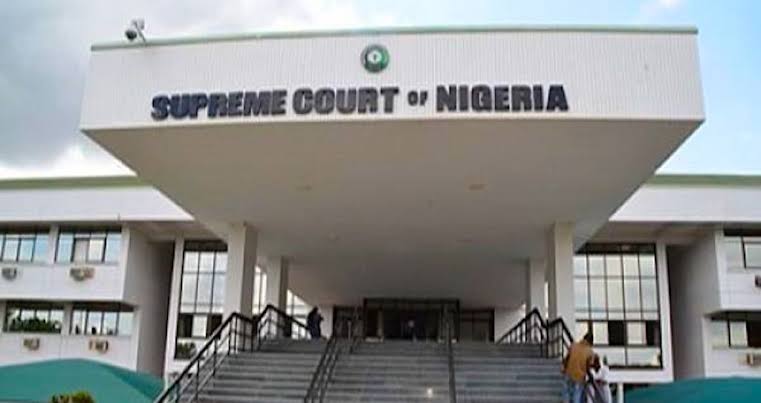Naira Redesign: ‘Disclose how you’re obeying Supreme Court orders’, SERAP tells Buhari
Socio-Economic Rights and Accountability Project (SERAP) has urged President Muhammadu Buhari to “disclose details of the measures your government is taking to immediately and effectively obey the Supreme Court decision extending the validity of the old N200, N500, and N1,000 notes, and directing the Central Bank of Nigeria (CBN) to continue to receive the notes from Nigerians.”
SERAP urged him “to publicly instruct the CBN to immediately and effectively implement the Supreme Court decision ordering an end to the cash withdrawal limits imposed by banks because such restrictions violate citizens’ right to freely use their property.”
SERAP also urged him “to disclose the measures that your government is taking to direct the CBN to immediately re-circulate the old N200, N500, and N1,000 notes, as ordered by the Supreme Court.”
In the letter dated 4 March, 2023 and signed by SERAP deputy director Kolawole Oluwadare, the organization said, “There is an overriding public interest in disclosing the details of the measures your government and the CBN are taking to effectively and satisfactorily obey the Supreme Court decision.”
According to SERAP, “Disclosing the measures that your government and the CBN are taking to implement the Supreme Court decision would also enable Nigerians to monitor and scrutinize the level of compliance with the decision.”
SERAP said, “The public should not be kept in the dark on what your government and the CBN are doing to implement the decision. Widely publishing the implementation measures would also improve accountability of state officials and public confidence in the rule of law and Nigeria’s democracy.”
The Supreme Court last week extended the validity of the old N200, N500, and N1,000 Naira notes till 31 December, stating that the CBN must continue to receive the notes from Nigerians. The Court held that the president’s directive on the redesign of the new notes without due consultation is invalid.
The letter, read in part: “We would be grateful if the requested information and recommended measures are implemented within 7 days of the receipt and/or publication of this letter. If we have not heard from you by then, SERAP shall take all appropriate legal actions to compel your government to comply with our requests.”
“The implementation by your government of the CBN policy on the redesign of the country’s currency has contributed to violations of citizens’ rights.”
“SERAP is concerned about the persistent disobedience of court orders by your government, and the apparent lack of respect for constitutional and international rule of law obligations.”
“Nigerians are entitled to the details of the level of compliance by your government and the CBN with the Supreme Court decision as a matter of transparency, justice and the rule of law.”
“The Nigerian Constitution, Freedom of Information Act, and human rights treaties to which the country is a state party rest on the principle that citizens should have access to information regarding their government’s activities.”
“Your government has the legal duties to act as ordered by the Supreme Court, and consistent with the provisions of the Nigerian Constitution, the CBN Act, and the country’s international obligations.”
“Our requests are brought in the public interest, and in keeping with the requirements of the Nigerian Constitution 1999 [as amended]; the Freedom of Information Act; the CBN Act, and the country’s international obligations including under the African Charter on Human and Peoples’ Rights.”
“According to our information, the Supreme Court has extended the validity of the N200, N500, and N1,000 Naira notes till 31 December, and directed that the CBN must continue to receive the old notes from Nigerians.”
“The Court held that your directive for the redesign of the new notes and withdrawal of the old notes without due consultation is invalid.”
“The Court also stated that the disobedience of its interim order of 8 February that the old N200, N500, and N1,000 notes should continue to circulate alongside the new ones makes Nigeria’s democracy look like a mere pretension while democracy is replaced with autocracy or dictatorship.”
“The Supreme Court also ruled that the cash withdrawal limits imposed by banks as a result of scarcity of currency notes in circulation is illegal, as it amounts to impermissible restriction on citizens’ right to freely use their property.”

